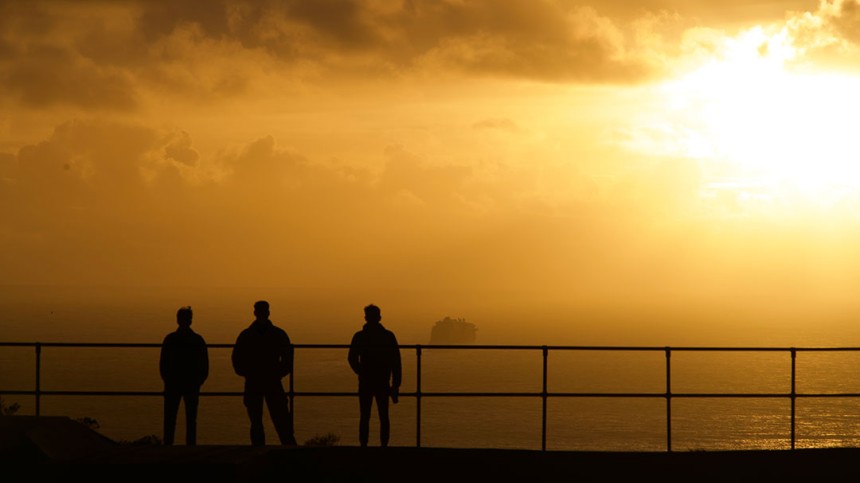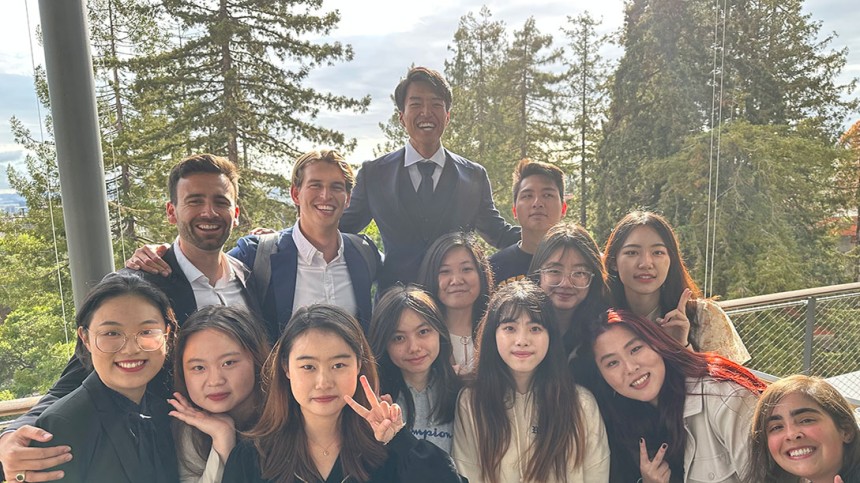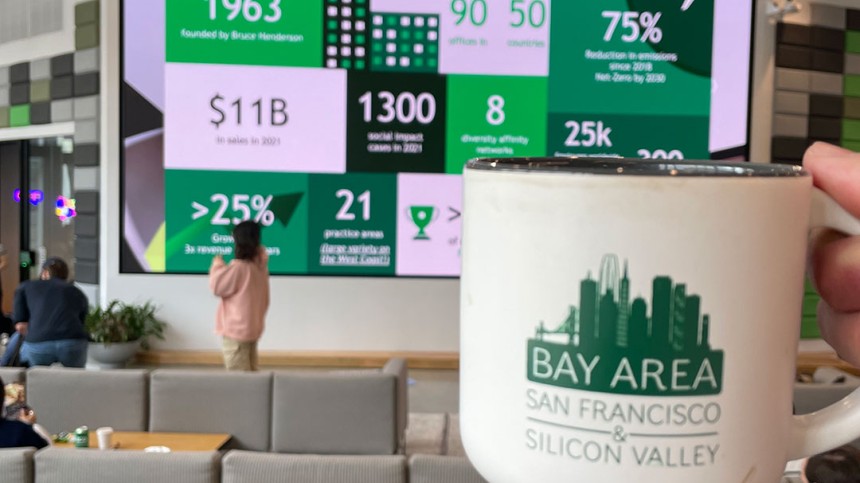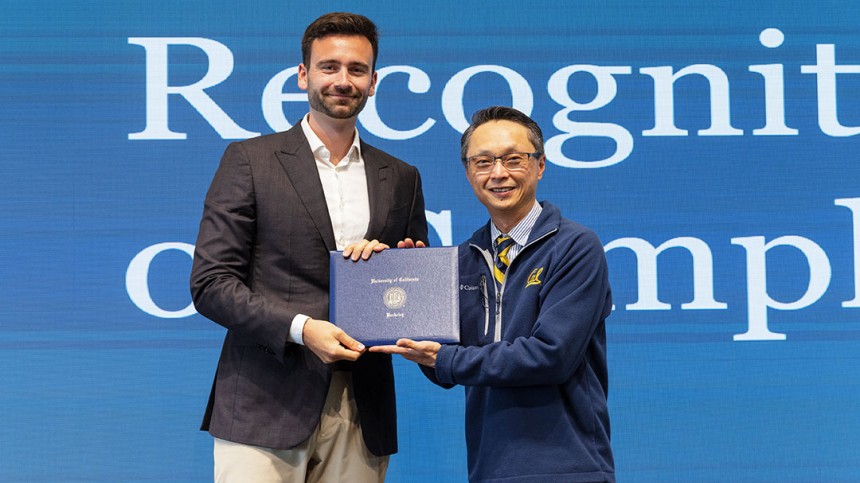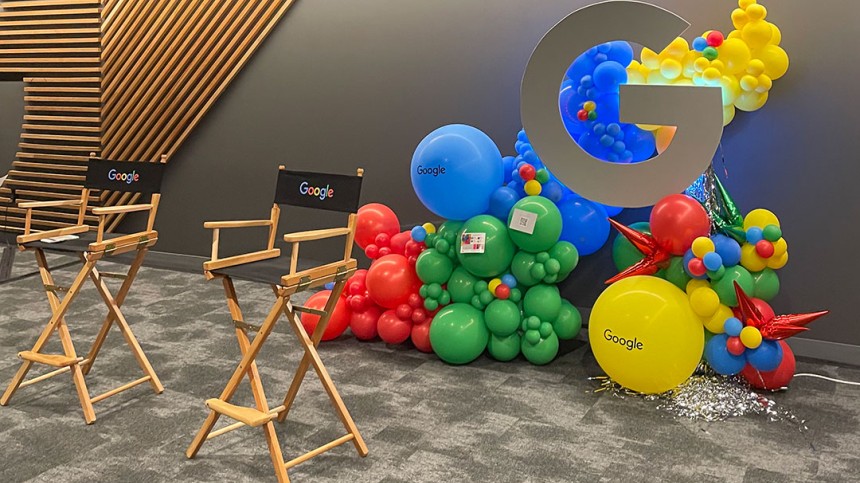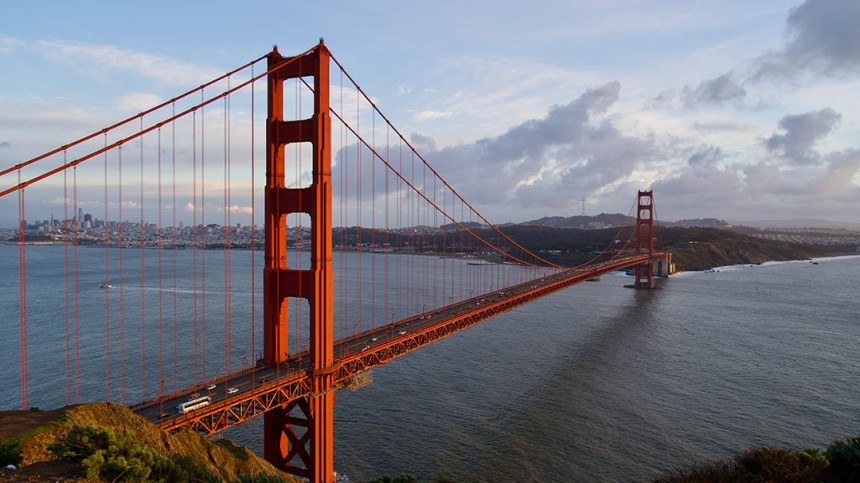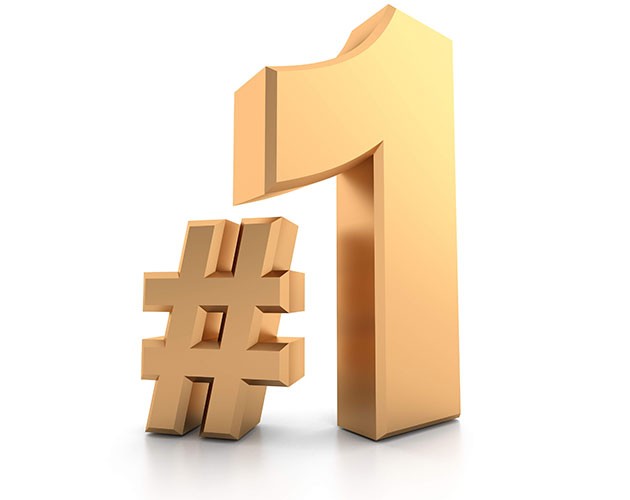7 Questions With BHGAP Grad Lucas Mortier

The draw to innovative business, questioning the status quo and finding new avenues to pursue career aspirations runs deep for Lucas Mortier. It’s what attracted him to begin studying law and economics—a pretty unique track, Lucas tells me—at the University of St.Gallen (Switzerland) in 2019.
It’s also what inspired Lucas to expand his global outlook with the St.Gallen Symposium, in which 30 students drive cross-generational dialogue and collaboration with more than 400 businesses and 300 universities worldwide. What started out by helping to set up a conference that attracted more than 1,000 people around the world his first year, Lucas’ commitment and drive led him to a leadership position with the organization in his second year at the symposium.
These experiences instilled the drive and innovation for Lucas to look for further global mindset opportunities. And that’s exactly when the Berkeley Haas Global Access Program (BHGAP) piqued his interest.
“Berkeley is a very well-known name in Switzerland,” Lucas tells me on a recent Zoom call. “A friend of mine went to Berkeley the year before as a visiting student. So when it came time for me to study abroad, I started looking at universities and I really liked the opportunity to go to Berkeley—a global campus—and connect with local businesses at the same time. Naturally, when I heard about the Silicon Valley company site visits, that was the moment I thought, ‘Okay, I need to go there.’”
1. How were your BHGAP classes different or the same as those at St.Gallen?
The classes at Haas are a lot more interactive. At my home university, normally there’d be 50-plus students in each class. But in BHGAP, there were fewer students so you had a lot more interaction directly with the professors. You got a sense that you are more like a customer to them rather than only a student because they wanted to get your feedback on the coursework.
The topics they taught were really integrated into real-life scenarios. The professors work in the field and have had amazing experiences in the workplace. The professors at my home university give lectures, but aren’t really that involved with local business. The Berkeley classes had case studies from scenarios that just happened in the news, so we’d think about how we can analyze those events.
I'm still in touch with one or two professors like Stephanie Fujii.
2. Were there any specific classes that really stood out to you?
Equitable and Inclusive Leadership with Stephanie Fujii—it was very demanding. At the beginning of the class, I had to dig deep within myself. “What are my standards? How was I brought up? Why was I brought up in this way and how is that different from people I meet here.”
It was a pretty intense journey, even though I thought I am very culturally open. But I had to think about how I would approach someone from another country or a different religion. You had to be hard on yourself sometimes because it was not easy—it was demanding.
Lucas’ BHGAP Courses
Introduction to Entrepreneurship
Negotiation and Conflict Resolution
Business Models for Sustainability
Microeconomic Analysis for Business Decisions
Equitable and Inclusive Leadership
“I was able to transfer these courses back to my home university and they were also subjects that I was very interested in learning about. I really enjoyed the Microeconomic Analysis for Business Decisions class—it was a lot easier to listen to than our economic courses at my home university!”
3. Site visits—any ones that you absolutely loved?
I didn’t get to go to as many as I would have liked because I was also traveling, but my favorites were Boston Consulting Group (BCG), Adobe, Google and AutoDesk.
The best part about the BCG visit was the Q&A at the end. The presenter was really open to answering our questions. Adobe and Google gave me the real “Silicon Valley” vibe. It was very cool.
AutoDesk was fascinating. The inventions they're creating—one of the fastest electric motorbikes—and what they are doing with computer-aided architectural designs is just amazing.
4. So you said you were also traveling, was that sightseeing?
I drove Highway 1 three times to Los Angeles and back because I loved it so much; it's a beautiful drive and I really like the warmer weather.
I also visited the redwoods, most of the towns in the Silicon Valley and Santa Cruz, as well as and a bit further south to San Diego and Mexico City.
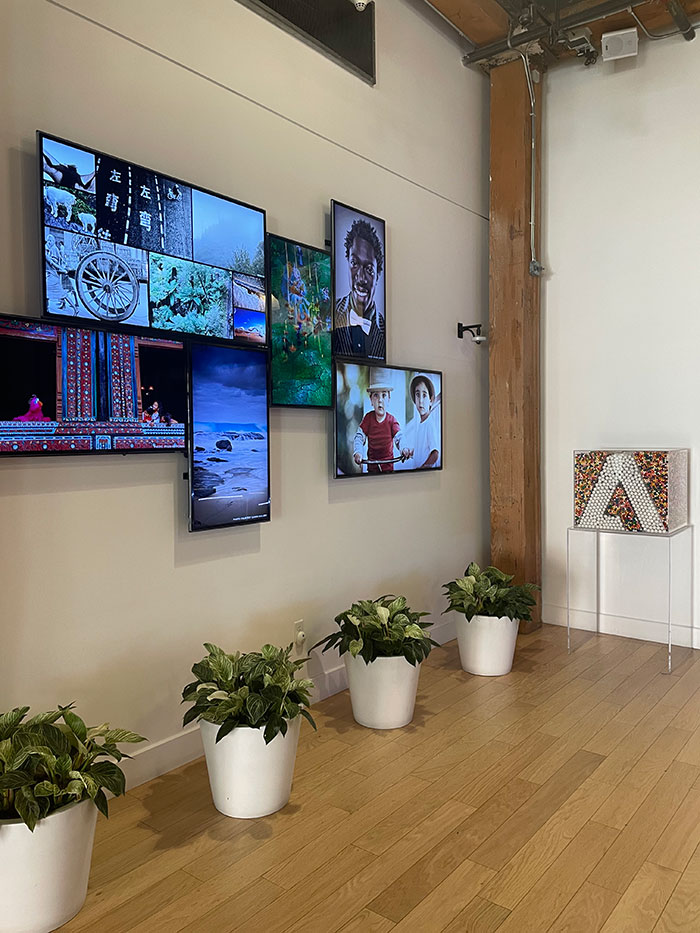
5. What were your top five things to do?
Battery Spencer at sunset is a must-do—it's beautiful just to see the Golden Gate Bridge. I loved to go to the View Lounge, which is at the top of the Marriott Marquis hotel in the South of Market district. Checking out a Golden State Warriors game—we don't really have basketball in Europe.
In Berkeley, it's the smaller things like going to get coffee with friends at Caffè Strada or walking around the various neighborhoods.
6. Advice for future students?
Something I got caught up with in the beginning was doing well at university, but you only go so often to California. If you're efficient, you will do well, but you can never do enough sightseeing.
Don't wait to go to Napa Valley or Sonoma—I never got the chance because I thought I could visit those places the next weekend, but then I never went. I’m still very sad about that. So go out there and explore California.
Also, don’t let the distance between your newly made friends hold you back from visiting each other. If you do BHGAP, you get to have new friends on several continents!
7. You’re about to finish up your undergraduate studies. Where can we find you five years from now?
Most likely working at a consultancy in Zurich. And if everything goes right, maybe also doing an M.B.A. in the U.S.
